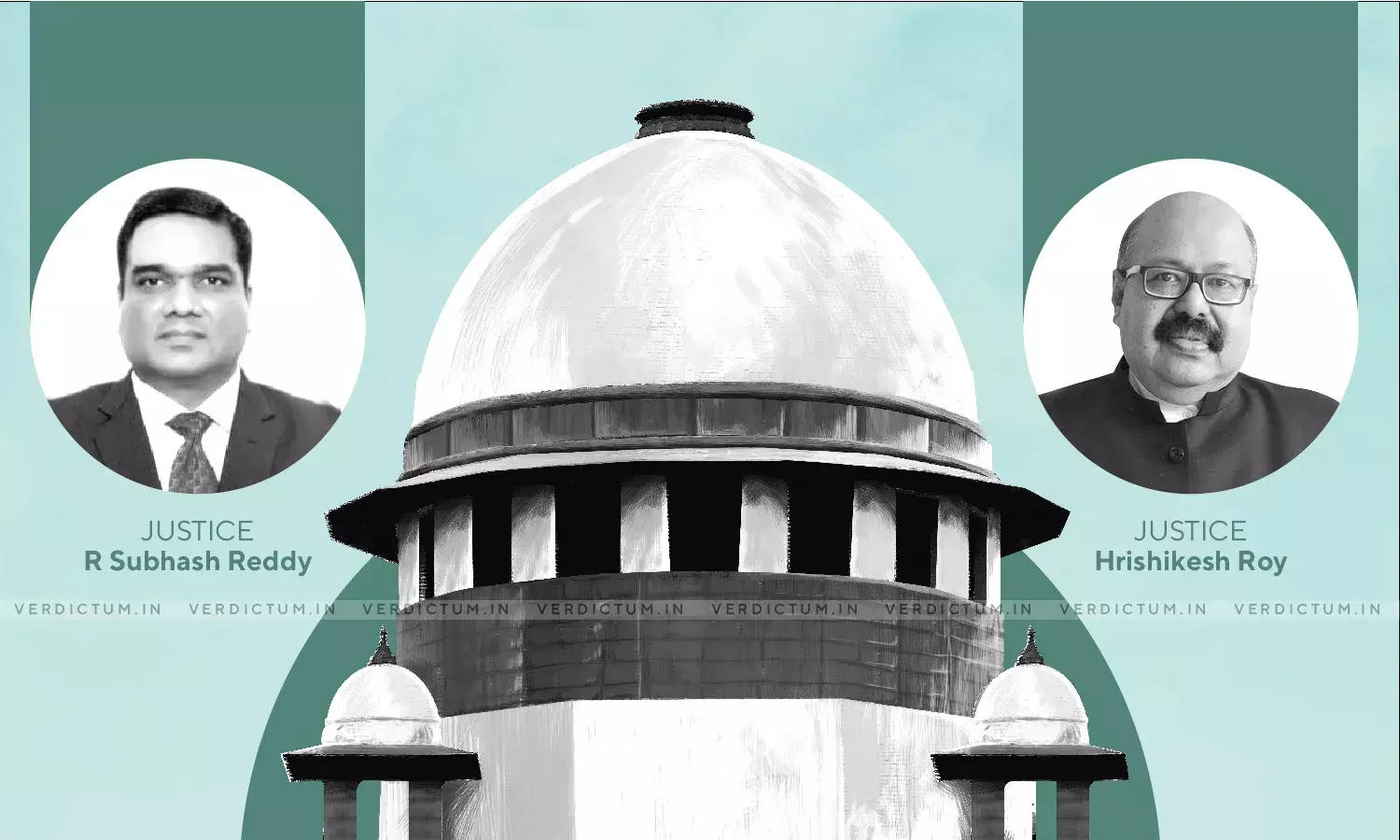Not Premeditated, Incident Occurred On The Spur Of Moment – Supreme Court Reduces Sentence For Offence U/s. 304 (ii) IPC

A two-judge Bench of Justice R. Subhash Reddy and Justice Hrishikesh Roy while reducing the sentence of an accused charged under Section 304 (ii) IPC has held that the incident was not preplanned or premeditated; it occurred on the spur of a moment leading to a sudden quarrel between the Appellant-Accused and Respondent-Complainant.
The Supreme Court reduced the sentence from 10 years Rigorous Imprisonment to 2 years Rigorous Imprisonment along with a fine of Rs. 5,000/- in default to undergo 3 years rigorous imprisonment.
Senior Counsel Mr. S. Nagamuthu appeared for the Appellant-Accused while Counsel Dr. Joseph Aristotle S. appeared for the State of Tamil Nadu before the Court.
An appeal was preferred by the Appellant-Accused before the Apex Court assailing the judgment of Madras High Court which had confirmed the conviction of the Accused No. 1 as pronounced by the Principal Sessions Judge.
The Appellant was convicted under Section 304 (ii) IPC and sentenced to undergo 10 years Rigorous Imprisonment along with a fine of Rs. 5,000/- in default to undergo 3 years Rigorous Imprisonment.
In this case, a dispute had arisen between the Appellant-Accused and Respondent-Complainant over a pathway that went through the land of the accused to the land of the complainant. The Appellant had earlier also filed a civil suit against the Respondent where the District Court had granted an injunction in favor of the Appellant.
Thereafter, a quarrel took place between the two where the female members of the accused were attacked and sustained injuries. This provoke the accused to attack the deceased and cause knife injuries which caused the death of the deceased.
The Trial Court had recorded a finding that the family members of the Respondent were the aggressors and they had tried to disturb the peaceful possession of the accused. It also noted that the accused had stabbed the deceased with a knife however, there was no pre-planning or premeditation and it was a sudden quarrel. Due to this, the Appellant exercised his right of private defense but exceeded the limit.
The Appellant relied upon a precedent Lakshmi Chand and Anr. v. State of Uttar Pradesh and argued before the Supreme Court that in this case, the SC had reduced the sentence of eight years to two years on the ground that the occurrence had taken place on spur of the moment without any premeditation and the same was on account of a dispute between the neighbours with regard to straying cattle.
Similarly, the case of Madhavan and Ors. v. State of Tamil Nadu was cited by the Appellant to argue that the SC had in this case also reduced the sentence to five years.
While the Respondent-Sate argued that conviction of ten years as confirmed by the High Court be maintained while relying on Ram Pyare Mishra v. Prem Shanker and Ors.
The Apex Court noted, "Trial Court itself has recorded that the de facto complainant's family members are the aggressors and they have tried to disturb the peaceful possession of the accused from their land. The said findings recorded by the Trial Court, became final. The same was not questioned either by the State or by the complainant."
"It is also clearly held by the Trial Court that it was not a premeditated or preplanned incident. It happened in a sudden quarrel on the day of occurrence i.e. on 14.06.2010," the Bench observed.
The Court held that as the findings of the Trial Court became final and also in view of the judgments relied upon by the Appellant-Accused which supported his case for modifying the sentence, it was appropriate to do so, to meet the ends of justice.
Accordingly, the Court modified the sentence of the Appellant-Accused while confirming the sentence under Section 304 (ii) IPC and partly allowed the appeal.
Click here to read/download the Judgment

